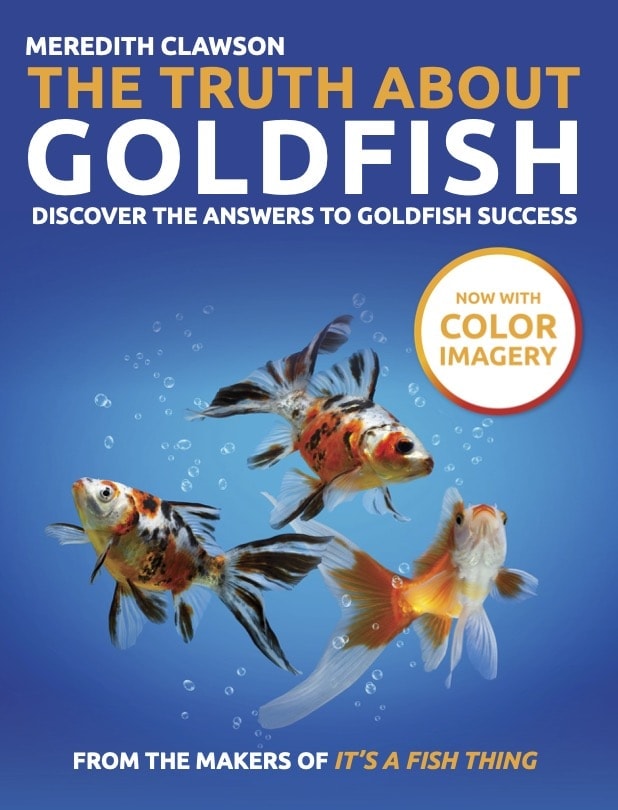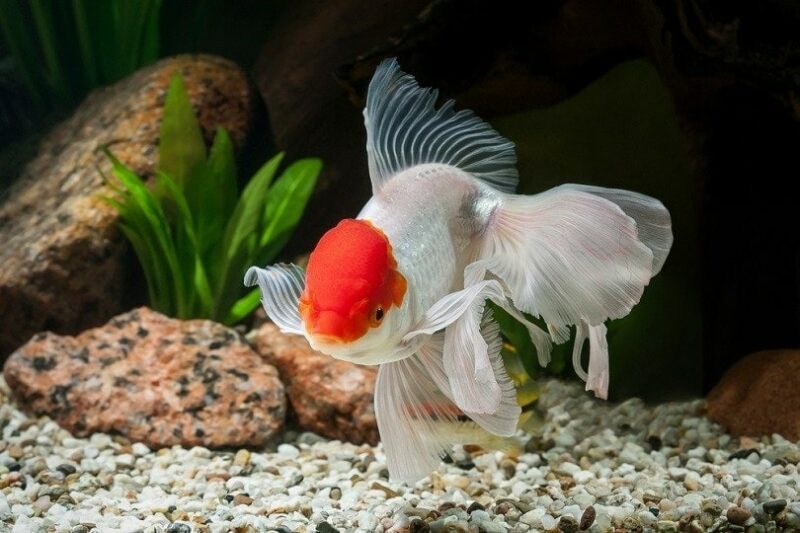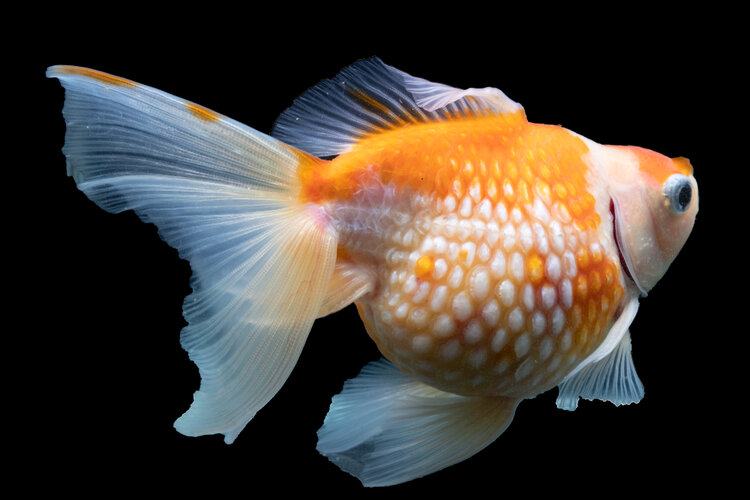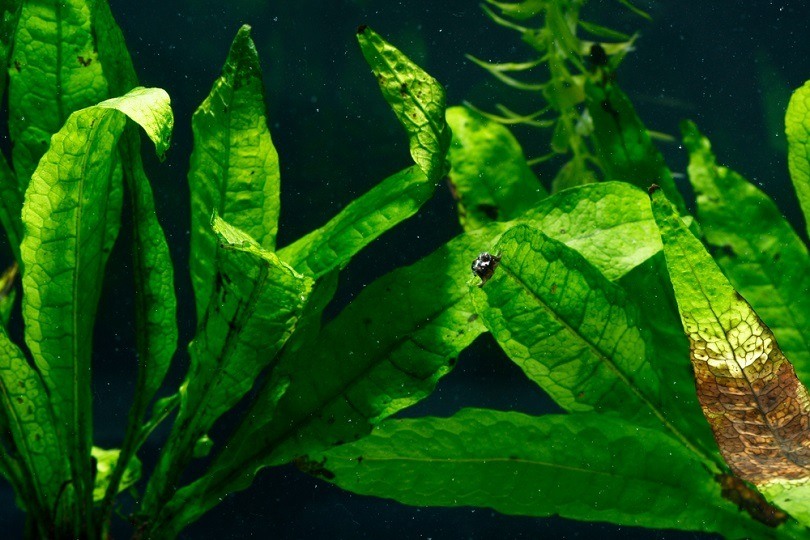Can Goldfish Drown? Facts & FAQs

Updated on
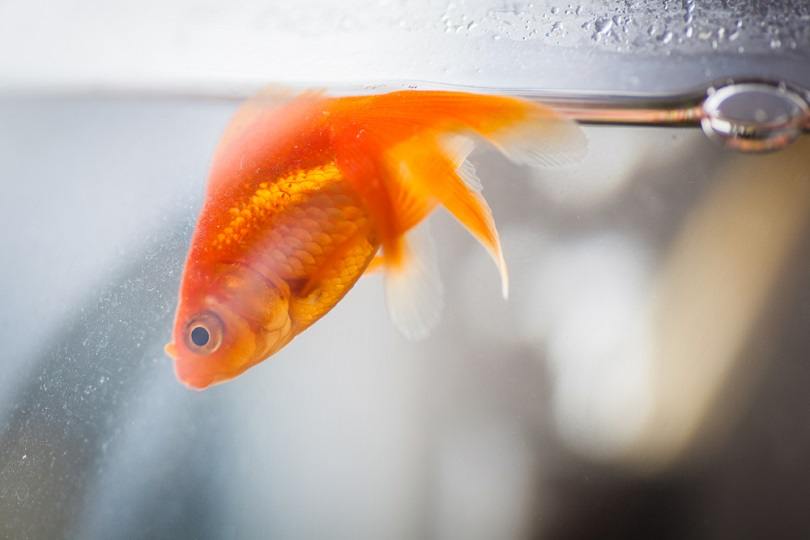
To put it quite simply, no, goldfish cannot drown, as they live and thrive in oxygenated water just like we live and survive in an oxygen rich non-aquatic environment. Drowning is typically when the lungs fill up with liquid and oxygen intake is not possible. However, goldfish can suffocate in water with low oxygen levels. What’s the difference? Let us explain.
How Do Goldfish Gills Work?
Goldfish use their gills to intake oxygen through the water and this is defined as them ‘breathing’ in their natural habitat, which is water. The gill is basically an organ made up of cell groups known as epithelium. Goldfish push the water by opening their gill flaps by opening and closing their mouth, in return they take in the dissolved oxygen.
The 6 Reasons Your Goldfish Might Die
1. Oxygen Deprivation
This happens when the aquarium runs out of dissolved oxygen in the water. Fish take in oxygen from the water and release carbon dioxide all through their gills (the flaps on each side of their face).
Oxygen deprivation can occur within an aquarium, leading to suffocation of the aquarium inhabitants (fish or invertebrates). This mainly happens for a few reasons, for example, if you have too many aquatic plants in your aquarium, at night the plants take in oxygen from the water that your fish or invertebrates desperately need, with a few plants it is recommended to have a particularly good aeration system or two in your aquaria.
Even with an establishment of appropriate aeration, too many plants that may have grown and overrun the tank will use the oxygen fish or invertebrates depend on, and the inhabitants will slowly suffocate in the aquarium’s water. Make sure you do no use too many plants and make sure they are all maintained well and not left to grow and duplicate out of control. Use more than one air stone and bubblers in well plant aquascape aquarium.
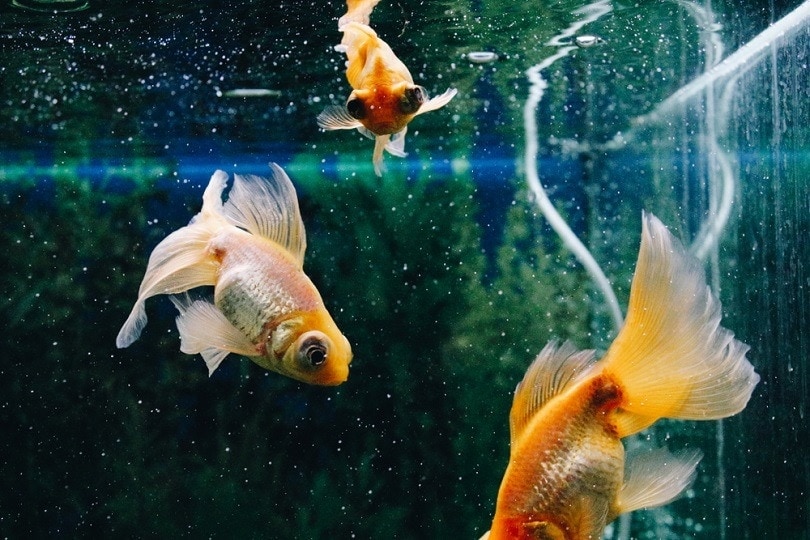
2. Dechlorinator or Medication Overdose
Dechlorinators take out chlorine found in household water, it will have the dosage per gallon or litre instructions to follow on the bottle. Although adding a bit more than advised does no harm, going overboard on the use of dechlorinator can lead to low oxygen levels within an aquarium. If you do not have an appropriate aeration establishment this can pose a problem within your aquarium.
Overdosing certain medicine into the tank can lead to the beneficial bacteria dying off and your tanks cycle crashing, a bacterial bloom (the establishment of bacteria that converts ammonia into nitrates which is safer in higher levels) uses some oxygen in the water to survive and appropriately establish itself. Too many chemicals in the water can lead to gill irritation and your fish will have trouble breathing.
3. Inadequate Housing
Too small of an aquarium such as a bowl, bio-orb or a small, overstocked tank can lead to a depletion of oxygen in the water, if there is too little water volume with an overstocked tank, the inhabitants can compete for oxygen and use it up quickly in small bodies of water, further leading to suffocation. If the goldfish cannot move properly this leads to suffocation as they need to move appropriately for their gills to work. Make sure you have a decent body of water for the number of fish you keep. A small unfiltered bowl is to be avoided. Choose the biggest aquarium you can comfortably afford and keep in your chosen space.

4. Poor Aeration
Poor aeration in an aquarium can be detrimental. All aquatic life requires appropriate oxygen levels within in their home to survive. Adding an air stone (or multiple) or even bubblers can help maintain a steady intake of oxygen within the aquarium and prevent suffocation and promote easier and more comfortable breathing.
If you want your fish to breathe properly but you’re unsure of exactly how to create the best aeration setup in your aquarium, you should check out our best-selling book, The Truth About Goldfish, on Amazon. It covers everything about tank setup and maintenance for all types of goldfish housing!
5. Carbon Dioxide Build-up
If there is a build-up of too much carbon dioxide in the water, this harms for aquatic inhabitants, leading to their suffocation. This can happen if you add C02 to your tank for your aquarium plants (keep in mind plants do not have a high demand for this) or if your fish has a cramped aquarium where carbon dioxide quickly builds up.
6. Gill Irritation
Gill irritation can occur from chemicals in the water, poor water conditions (high ammonia or nitrites) or from an illness such as gill flukes which damage the gills preventing appropriate movement of the gills for oxygen intake.

Conclusion
So, as we have established, goldfish do not drown in water, but they can suffocate. This can easily be avoided by providing your goldfish with swim space, aeration, normal medicine and chemical dosing, clean-filtered water with 0 ppm ammonia as well as to not add CO2 for any aquarium plants in the tank and make sure to appropriately treat your fish when they are sick, and you will be rewarded with a well oxygenated and established home for your goldfish.
Featured Image Credit: Jammy Photography, Shutterstock
